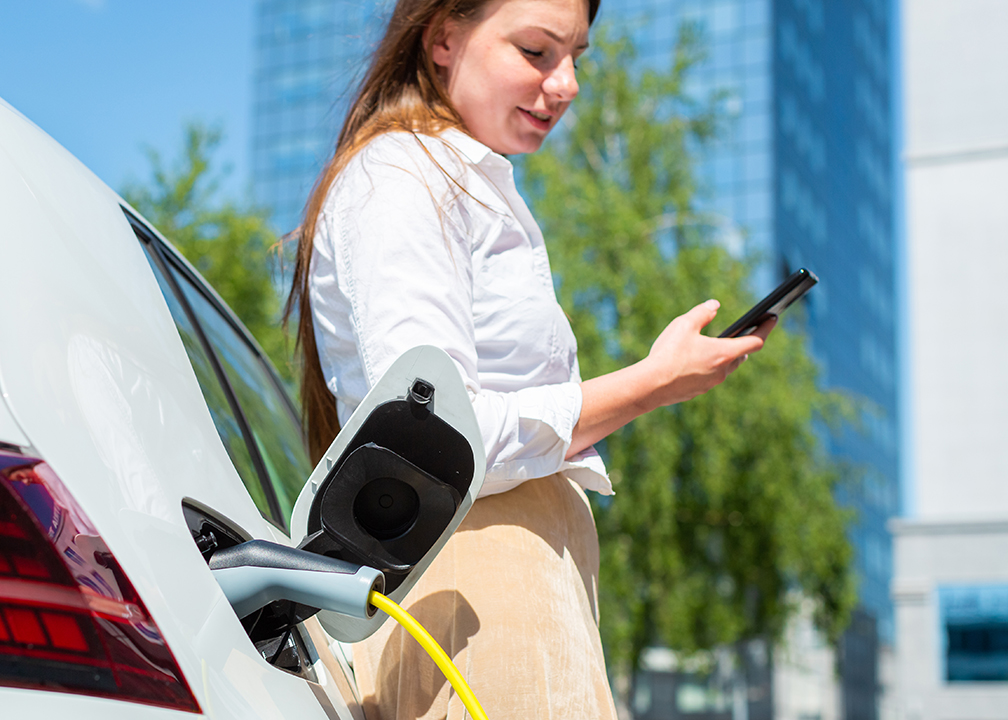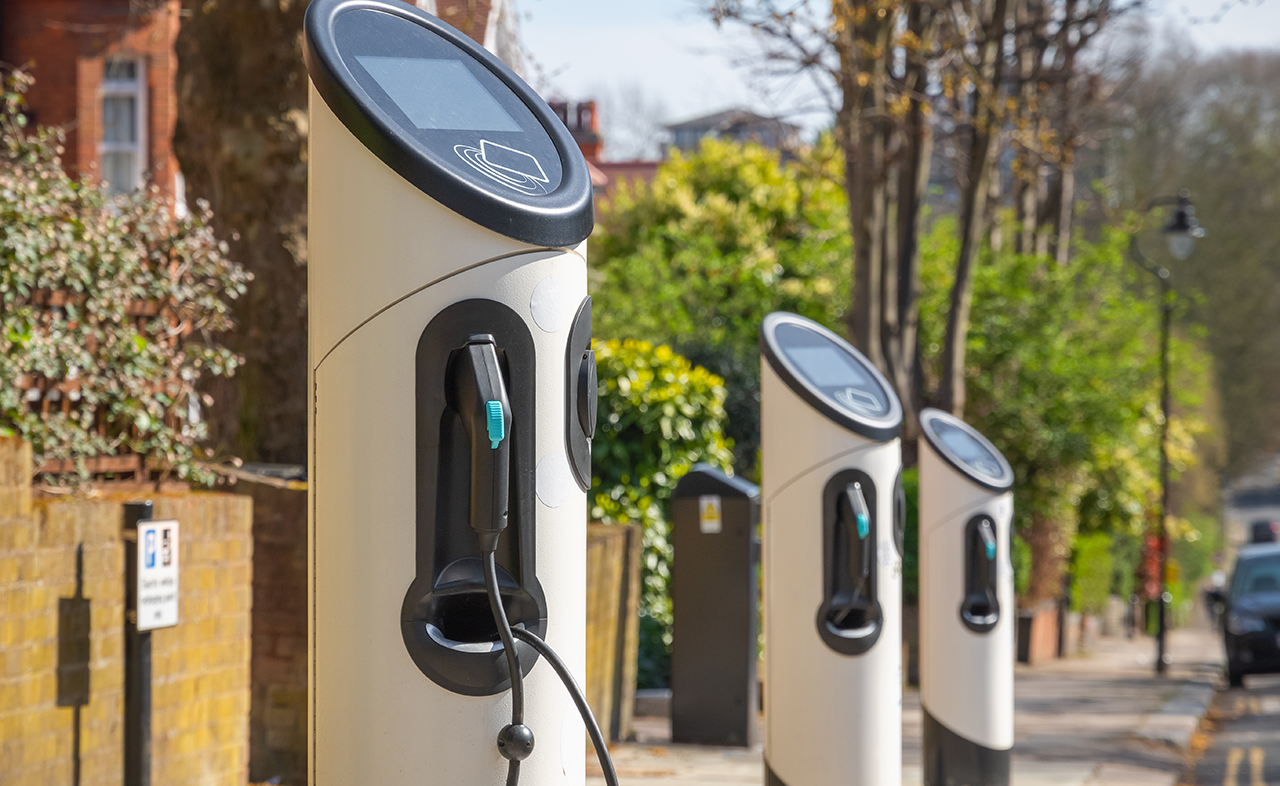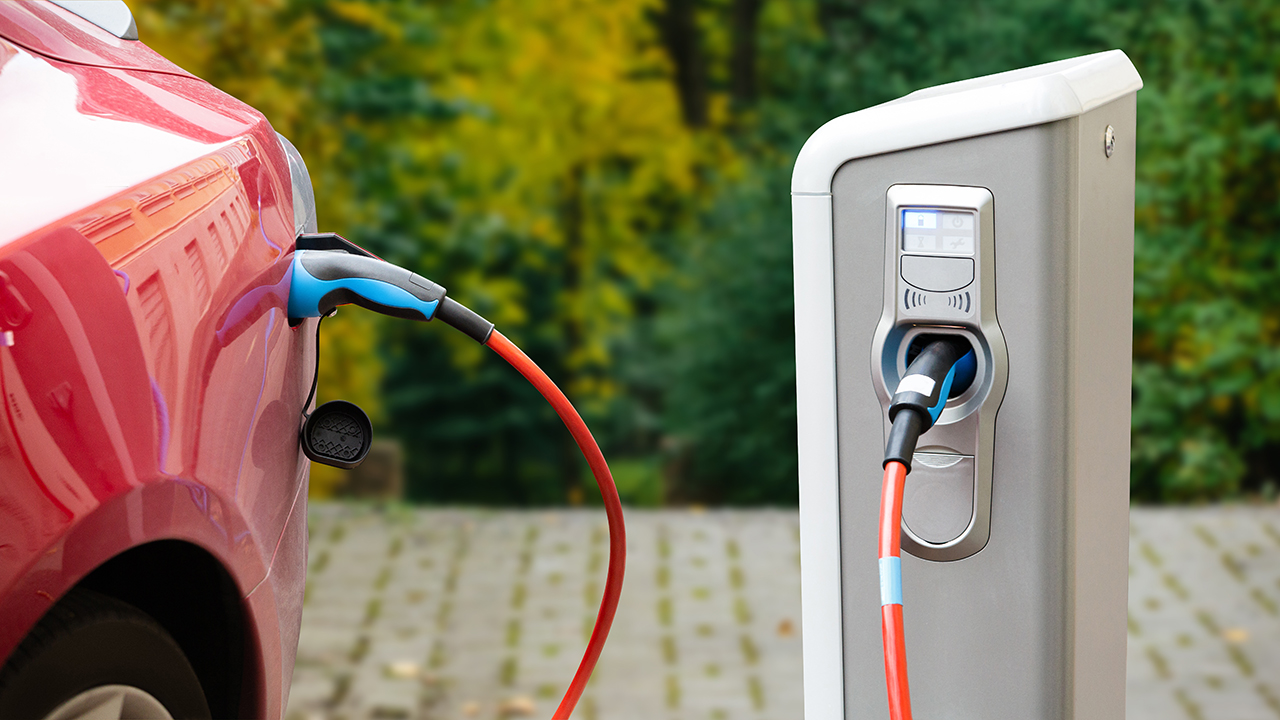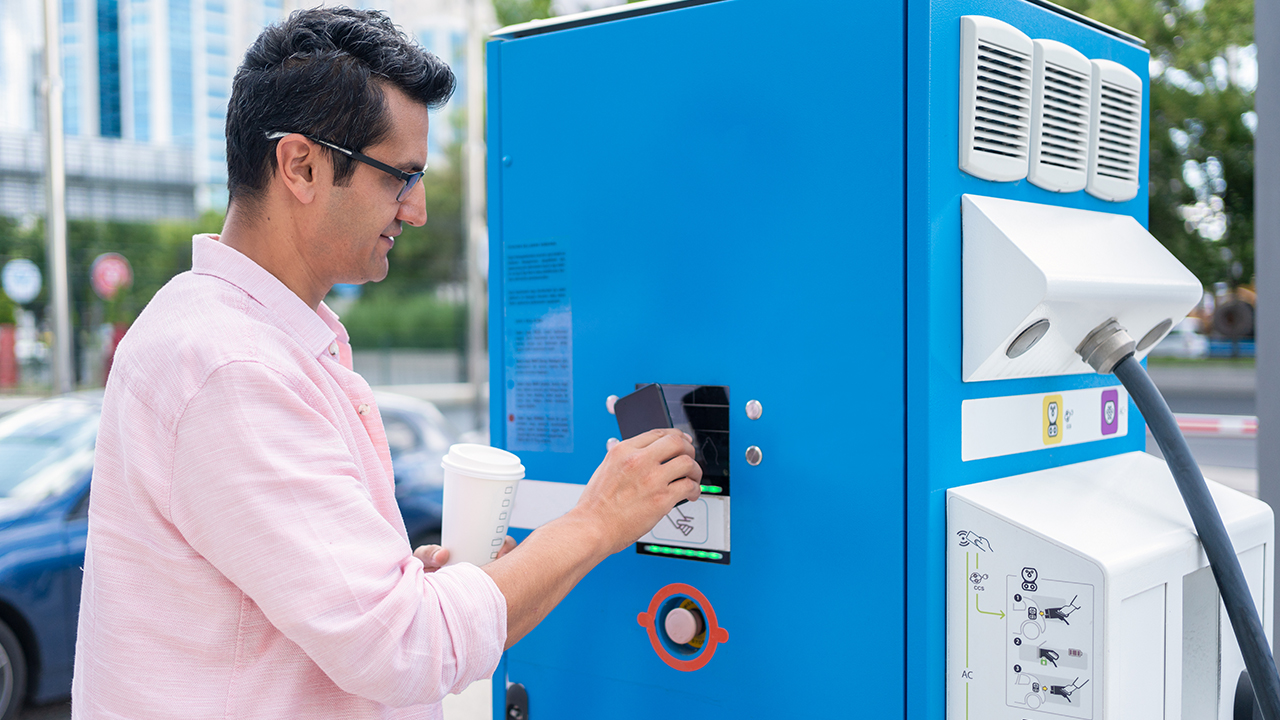The global market for electric vehicle (EV) growth has accelerated dramatically in the last decade — but EV infrastructure hasn’t kept pace everywhere. While EVs are predicted to represent the majority of worldwide
passenger car and bus sales by 2040, adoption in the United States has lagged behind other regions — and lacking EV infrastructure plays a major role in that trend.
In the US, public initiatives have been used to drive sustainability efforts, including
building sustainable cities. But future growth in EV usage will require more than federal tax credits. Building charging infrastructure will deliver the convenient, reliable mobility that drivers — and local economies — need to benefit from EV adoption.
We are on the cusp of immense change, not just in the US, but globally, as municipalities, neighborhoods, building complexes, highways and even remote areas seek to build out the infrastructure needed for electric vehicles.

Electric Vehicle Growth: Where Are We Now and Where Are We Headed?
Many proponents of sustainability in transportation want to see a complete shift to EVs. Interest in purchasing electric vehicles is gaining traction, to support lower emissions and better air quality. At the same time, U.S. federal spending today is targeting EV infrastructure as part of its overhaul of roads, bridges and other critical infrastructure. US adults that have more knowledge about EVs are more likely to consider purchasing them, which makes building widespread charging networks that much more important in the coming years.
Whether public or private, charging stations allow EV owners to have the convenience and mobility that other drivers experience. Not only do chargers need to be more accessible, but their networks also need to be manageable at scale. That requires more charging station construction and smart cities taking initiative to integrate Internet of Things (IoT) technology in local power grids.
With strategic public investments, the US can further develop its EV infrastructure and expand on ongoing improvements:
- Availability of charging stations: The US has over 200,000 public chargers as of 2025. As the country continues to develop and improve its EV charging infrastructure, the growing infrastructure will support this industry's growth.
- Fast-charging technology: Recent improvements in fast-charging units have made EVs a viable option for many consumer and industrial use cases. Making these types of EV chargers more widely available can help make these vehicles more appealing to corporations that operate large fleets of vehicles.
- Electrical grid solutions: As charging networks continue to expand, controlling demand on local power grids will become critical. Vehicle-to-grid (V2G) technology can help monitor demands on electricity grids and use vehicles’ embedded systems to regulate charging.
Electric Vehicles: Prospects and Challenges

Green technologies are nothing new, but municipalities and businesses seeking to improve their environmental impact see EV adoption as incredibly useful tools in that effort. Technology advances from vehicle original equipment manufacturers (OEMs) further support public and corporate initiatives to contribute to a cleaner, more sustainable world.
Each year, more communities are investing in the IoT technology needed to develop smart, sustainable cities. Improved EV platform and charging technologies will affect how well and how quickly charging infrastructure develops.
Promising prospects for EV adoption in the US include:
- Budget-friendly EV options: The relatively high purchase prices of electric cars limited buyers’ interest in the past. In 2025, automakers are expanding their EV offerings and increasing production, making it more likely that lower-priced options will become more widely available. Major trends include the launch of new EV models including Rivian R2S, Ford F-150 Lightning Pro and more. Additionally, there's a focus on improving battery technology, increasing driving ranges, and expanding charging infrastructure to support the growing EV market.
- Electric car recharge time: The inconvenience of long charging times can also dissuade consumers. As EV charging networks are built out, developers need to consider customer experience when selecting which types of EV chargers to install and how charging speed is regulated. And with V2G technology, smart charging can help maximize charging speeds while maintaining the integrity of electricity grids.
- Ongoing sustainability efforts: Public sustainability funding can also continue easing the path for EV adoption. That can come in the form of tax incentives for consumers and corporations, funding charging accessibility and standardizing EV infrastructure.
While EV infrastructure is already improving in many aspects, there are also challenges that could limit its future effectiveness:
- Cost to build: Building charging stations can be cost-prohibitive, limiting both private and public investments in this area. And the cost for different types of chargers can range greatly, which can further limit the availability of more expensive, fast-charging stations for electric cars.
- Inconsistent pricing for charging: While electricity costs for charging at home or at a commercial property are determined by utility regulators, charging stations can have varying pricing and often offer little transparency. That experience can frustrate EV owners, which can slow adoption further among already hesitant consumers.
- Regional differences in EV adoption: In rural and suburban communities, EVs and charging stations can be relatively uncommon. Low consumer interest in these regions could dissuade legislators and private investors from building local EV charging networks, in an effort to avoid the risk of a slow return on investment.
EV Charging Networks

So what is an EV charging network? While the term is also used more broadly, an EV charging network is a collection of charging stations that are connected to the same cloud environment. With centralized management solutions, operations teams can maintain visibility over charger usage, maintenance needs, charging capacity at different stations and more.
Charging networks can range in size, and there are over 100 EV charging companies in the US. California’s ChargePoint has the largest network with over 68,000 chargers. As smart cities improve their infrastructure to support the future of sustainable mobility, the question is: what kind of chargers will be chosen and how will those decisions fulfill the needs of EV drivers?
How Do Electric Car Charging Stations Work?
Are all electric car chargers the same? And how do they work? Most electric cars and passenger vehicle charge overnight or during the work day, whether at home or on commercial properties. In such cases, slower charging can be a feasible option. In contrast, at charging stations, EV drivers can pull up, pay to charge for half an hour and be able to reach their home or office. But faster, more expensive charging is available as well.
Before we explore that topic, we’ll answer some frequently asked questions about charging stations.
- What powers electric car charging stations? Electric car charging stations can have various power sources, including wind and solar energy. Most commonly, these stations are powered by natural gas, and they can also be connected to the same electricity grid as your home.
- How many charging stations are there in the US? According to the US Department of Energy, there are 43,000 EV charging stations in the country and over 120,000 charging ports. For EV adoption to continue increasing, there need to be many more stations built in the coming years, and they need to be more evenly distributed by region.
- Is charging an electric car cheaper than gas? Recently, the Anderson Economic Group conducted research that showed, per 100 miles of driving, electric cars can be more expensive to charge compared to fueling gas-powered cars. However, this study didn’t account for reduced maintenance costs, which can make EVs cheaper to own long-term.
EV Charging Levels

EV chargers work very similarly to most other plug-in technology. The charger draws electrical current from the associated outlet or power grid connection to charge the electric car’s battery. How long that process takes depends on outlet voltage and the charger power rating, which vary across the four different levels of charging for electric cars. And of course with increasing demand, fast charging stations for electric cars will increasingly needed, creating an excellent market opportunity for product developers in the EV charging market.
EV Charging Type: 1
Broadly speaking, there are two types of EV chargers: slow chargers that use alternating current (AC) and fast-charging units that use direct current (DC). Level 1 EV chargers offer the slowest charging. Although they take the most time to fully charge an electric car, these chargers can be convenient since they are compatible with the 120 V outlets found in US homes.
- Typical Power Rating: 1.4 kilowatts (kW)
- Charge Time for 100 Miles: Over 16 hours
- Where This Type of Charger is Found: Typically found in homes and office parking
EV Charging Type: 2
Level 2 chargers offer faster charging speeds than Level 1 units. These chargers also use AC, but they can be plugged into 240V outlets, which are often used for home laundry machines and can be reached with an extension cord.
- Typical Power Rating: Between 3 kW and 20 kW of AC, usually around 6kW
- Charge Time for 100 Miles: Over 4 hours
- Where This Type of Charger is Found: This is the most common type of EV charger in the US, and they can be found in homes, on commercial properties and used to charge larger EV fleets.
EV Charging Type: 3
Until recently, Level 3 EV chargers were the fastest type available, and when comparing Level 2 vs Level 3 charging, drivers will see a significant jump in charging speed. These are also known as direct current fast chargers (DCFCs). Although fast and convenient, DCFCs are much more expensive and complicated to install. Tesla’s superchargers are also considered Level 3 chargers but provide significantly faster charging.
- Typical Power Rating: Around 50kW of DC
- Charge Time for 100 Miles: Around 31 minutes
- Where This Type of Charger is Found: DCFC chargers require direct grid access for installation, which means they’re usually found in industrial facilities only
EV Charging Type: 4
Level 4 chargers are an even faster type of DCFC. These chargers are expected to handle electrical connections between 800V and 1000V, but they are not often found in consumer or commercial charging stations.
- Typical Power Rating: Over 400 kW of DC
- Charge Time for 100 Miles: Under 5 minutes
- Where This Type of Charger is Found: Level 4 chargers are not widely available and so far have mainly been used by vehicle OEMs for product testing.
EV Charging Costs

In the US, transportation alone is responsible for 26% of energy usage, mainly from fossil fuels, contributing to carbon outputs and environmental pollution. By investing in EV infrastructure, the US has the chance to not only reduce environmental and healthcare costs from air pollution but also deliver economic growth through job creation.
However, while weighing the pros and cons of making these large investments, public officials and charging companies need to consider the “invisible soft costs” of developing EV infrastructure:
- The need to build communication platforms that allow utility regulators and charging providers to communicate and manage charging rates to protect the power grid
- The cost of future-proofing charging stations so that the technology isn’t obsolete in a few years
- Lengthy permitting and easement processes, inspections and other installation and construction-related delays
EV Charging Developer Tips:
Resources from Digi include complete, secure, system-on-module developer platforms designed to support scalable products and rapid time-to-market, RF and cellular communications modules, and wireless design services to support your project at any point along the way.
How EV Saves Money
Increasing EV adoption can save communities money and bolster local economies. With the technology advancements vehicle OEMs are bringing to market, today’s EVs provide a smart mobility option that can overtake the prevalence of gas-powered vehicles.
Reducing the environmental impact of transportation is critical for improving environmental and public health, which has economic benefits. In the US, pollution from burning fossil fuels increases worker absenteeism due to illness as well as hundreds of thousands of premature deaths each year. That results in increased healthcare costs and reduces productivity. All of that has an effect on the health of the US population and its national and local economies.
Having a large, dependable network of EV chargers and EV infrastructure can ultimately save money and benefit society in many other ways, including:
- Reducing carbon emissions, which can help address climate change and the costly weather-related disasters it brings.
- Increasing usage of renewable energy to charge EVs, thereby giving local communities control over their fuel source.
- Generating short-term and long-term jobs, as EV charging stations will require installation, monitoring, maintenance and repair.
Watch Our Video: The IoT Revolution — Connecting Green Tech
Regardless of whether public or private investments lead the charge, it’s clear that electric cars, passenger vehicles, buses and other forms of electricity-powered transportation will dominate the future of mobility in the US. As smart cities become more common, more drivers will have convenient access to charging networks that offer a variety of charging levels and more competitive pricing.
Our recorded webinar shares insights for developers who want to build cutting edge, market-ready solutions to serve the rapidly growing needs of smart cities, apartment and building owners and more.
As EV models continue to improve and integrate embedded systems that make charging networks easier to manage at scale, IoT technology will continue to play an integral role in deploying and managing EV platforms and other green solutions, helping support the future of sustainable transportation. We invite you to explore our blog to learn more about the relationship between tech and sustainability.
EV Infrastructure FAQs
What is EV infrastructure and why is it crucial for electric vehicle adoption?
EV infrastructure encompasses the network of charging stations, grid connections, and supporting systems needed to enable electric vehicles to operate reliably. Without sufficient and accessible charging infrastructure, EV adoption lags—drivers need confidence that they can charge where and when they need to. The blog notes that though EVs may become the dominant mode of transportation, the U.S. infrastructure expansion must accelerate to keep pace.
How is EV infrastructure currently evolving in the U.S.?
- The U.S. has over 200,000 public chargers in 2025, a base from which expansion continues
- Federal and local investments are supporting charging station deployment as part of broader infrastructure and sustainability initiatives
- New EV models and lower-cost options are entering the market, nudging more consumers toward adoption—this, in turn, drives demand for more charging stations
What are the main benefits of deploying large-scale EV charging networks?
- Improved convenience and accessibility for EV drivers, lowering “range anxiety.”
- Operational visibility and management: Modern charging networks often connect to cloud platforms, enabling central management of utilization, maintenance needs, and performance.
- Economic and environmental impact: Reducing tailpipe emissions, improving air quality, supporting local green mobility, and creating jobs in installation, operations, and servicing.
- Grid optimization and smart charging potential: As more EVs charge, intelligent coordination (and even vehicle-to-grid / V2G systems) can help balance demand and reduce grid stress.
How Does AI Work in Smart Devices?What challenges or “hidden costs” complicate EV infrastructure deployment?
- High capital cost and complexity: Installing chargers (especially fast chargers) demands significant investment in hardware, construction, permits, and electrical upgrades
- “Soft costs”: Permitting, inspections, easements, communication infrastructure, and coordination with utilities add delays and expense
- Grid strain and demand management: As charging stations proliferate, coordinating load and timing to avoid overloading local distribution systems becomes critical
- Uneven regional deployment: Rural and suburban areas often see slower growth in EV station deployment due to lower density and usage, making investment less attractive
- Inconsistent pricing and transparency: Variability in charging rates and lack of clarity can frustrate users, undermining confidence
- Risk of obsolescence: Charger technologies evolve. Infrastructure must be designed to adapt rather than become obsolete quickly
What is an EV charging network, and how does it function?
An EV charging network is a collection of charging stations connected to a shared backend (cloud or management platform). This network enables:
- Real-time visibility of station usage and performance
- Remote diagnostics and maintenance alerts
- Load balancing, pricing control, firmware updates
- Data collection for usage patterns and planning
The blog points out that centralized management is essential for scale, especially as the number of stations grows.
How should developers or organizations approach EV infrastructure projects?
- Plan for scalable connectivity: Use IoT-enabled communication modules and remote management from the start to support future growth
- Design for integration with power systems and grid needs: Work with utilities to ensure adequate power delivery and smart demand controls
- Choose modular and upgradeable hardware to accommodate future charger advances without full replacement.
- Factor in soft costs early: Permits, inspections, network connectivity, site preparation—these often consume time and budget
- Consider user experience and transparency: Usability, payment systems, pricing clarity, app interfaces all influence adoption
- Incorporate smart grid / V2G capabilities: Designing infrastructure that supports two-way energy flows helps future-proof against grid integration challenges